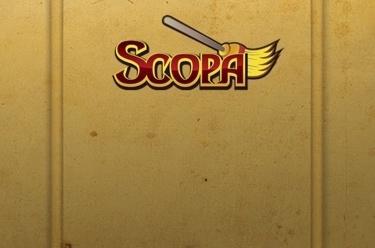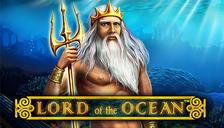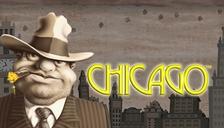
Scopa
Getting started
Start a new game or join one started by a fellow player. If you start a new game, you may choose who is allowed to join you at the table, how high the stakes are, and how many players in total can participate (2 or 4). You have the choice between the Italian version Scopa and the Spanish version Escoba and you decide up to how many points the game is played (11, 13, 15, 17, or 21).
Participating players, wagers and credit are displayed at the right side of the gaming table. You can also communicate with the other players using the chat function.
It is displayed at the bottom of the gaming table your player name with symbols like a broom, cards, coins/diamonds, 7 and P. These provide information on whether you currently have the best chance of scoring points for each category. Information about your fellow players is displayed at the top of the playing field.
Gameplay
The game is played with 40 cards in 4 suits. Select the French set, you play with diamonds, clubs, hearts and spades. Opt for the Italian and Spanish cards, you’ll play with coins, batons, cups and swords.
Card values
Ace | 1 |
2 | 2 |
3 | 3 |
4 | 4 |
5 | 5 |
6 | 6 |
7 | 7 |
Jack/Fante | 8 |
Queen/Cavallo | 9 |
King/Re | 10 |
Each player starts with 3 cards. 4 further cards are dealt face up on the table. When all players have played their 3 cards, you receive new cards from the deck.
The player whose turn it is tries to take one or more cards from the table with one of the cards in their hand. The following rules apply:
- In Scopa:
The cards that you take from the table must total the same number of points as a card from your hand. If the value of the card on the table matches the value of the card you have laid you can only take this one. If you can’t take a card, you will have to lay a card face up on the table.
Examples:
Cards with the values 2, 3, 8 (fante/jack) and 10 (re/king) are on the table. You have a 1/an ace and a 5 in your hand. With your 5 you can take the 2 and 3 from the table.
If instead of the fante another 5 is on the table you cannot collect the 2 and 3 but only the card with a matching value: a 5. If you only have a 1 or an ace in your hand you can only pick up another 1/ace from the table.
- In Escoba:
The cards you pick up from the table and the card played from your hand must total 15 points.
Examples:
On the table are cards with the values 2, 3, 8 (fante/jack) and 10 (re/king). You have a 1/an ace and a 5 in your hand. With your 5 you can pick up the re from the table because it has the value 10 and totals 15 points together with the re.
If you only have a 1/an ace in your hand you can only put it face up on the table. It cannot make a combination with cards from the table to reach 15 points.
Clear the table: Scopa/Escoba
If you take all of the table cards at once with your card, that counts as a Scopa or Escoba, and you get an extra point. You should always try to play so that your opponent does not achieve these extra points and your achieve as many as possible. If the table is empty, the next player must place one of their cards in the center of the table.
End of the game
If no more cards are available in the deck to be distributed, the round ends and scores are calculated. The player who won the last card, gets the remaining cards from the table. There is, however, no additional Scopa/Escoba point awarded for this.
A game of Scopa/Escoba is over when a player has reached the previously agreed point limit. In the case of a tie, another round is played.
Scoring
You get one point if you have managed to obtain the most amount of cards (card symbols). In addition, there is also a point for the player who has the most cards in coins/diamonds (coin/diamond symbol) and another point for the player with the most 7s (symbol 7). If you have collected the coin/diamond seven you are awarded an extra point. All of the above-mentioned points are only awarded when the game has not ended in a tie, but there is a clear winner for each category.
Another point is awarded for Primiera (symbol P). For this, the best card of each suit is counted when a team is counting tricks won and the points of these are added up. Please note that the point values of cards from their classification differ according to card values during the game. Individual cards count as follows in the Primiera:
- 7: 21 points
- 6: 18 points
- 1: 16 points
- 5: 15 points
- 4: 14 points
- 3: 13 points
- 2: 12 points
- Face cards: 10
If a player is missing one or more suits, they lose the Primiera point against an opponent with more varied suits.
Tips
Winning many cards is generally beneficial. Particularly important, however, is collecting as many coin/diamond cards as possible. In addition, you should try to land as many 7s (especially the 7 of coins/diamonds) and 6s as possible to obtain the Primiera point. If you manage to clear the entire table often, you have pretty much won.
Special tip for Escoba
With Escoba, you should aim to take any the enemy’s chance to clear the table. You achieve this either by leaving cards on the table where the card value is so small that the opponent can not reach the value of 15 with any cards, or you leave a card value that can reach 15 with a card value which you know that the opponent does not have. So you should, therefore, take good care of what cards have already fallen and which are still in the game.
Special tip for Scopa
You should deny the enemy the chance to clear the table in Scopa. There are two strategies to do this: You should either try to ensure that the points value of the cards on the table remains above ten, so that the opponent can not clear the table with any card. Or you should try to lay card values on the table which you know the opponents do not have. If you know, for example, that all four 6s have been played, you can put a card value of 6 on the table without hesitation.




